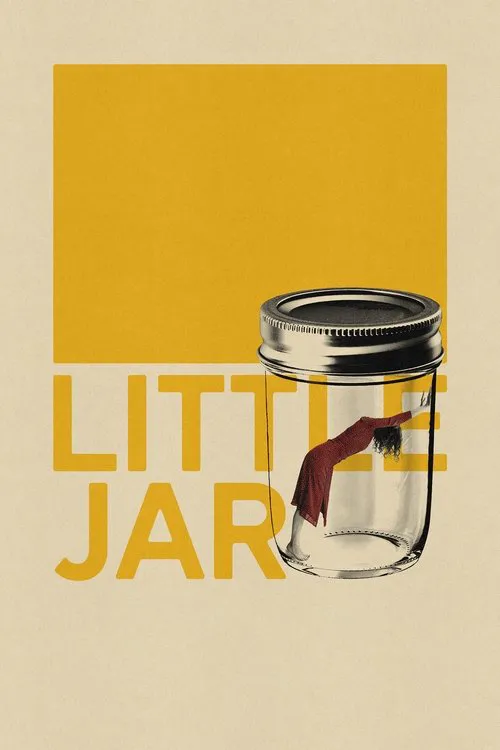Little Jar

Trama
In the quaint yet isolated town, Ainsley wanders through her days with an air of apathy, her disdain for humanity palpable. She shuns social interactions and finds solace in her solitude. Her daily routine becomes a monotony of indifference, numbed by a deep-seated aversion to the world around her. The once-vibrant streets, now desolate and grey, have become the embodiment of her hollow existence. People passing by are mere echoes, insignificant to her world. However, fate has other plans for Ainsley. One fateful evening, a series of unexplained events forces her to be confined to her room, leaving her isolated and cut off from the outside world. At first, she resents this confinement, believing it's just one more instance of life conspiring against her. Yet, with each passing moment, she begins to feel an unsettling void. Without the distractions of the world outside, she finds herself facing the mirror, staring into the eyes of her own loneliness. It's here, alone in the darkness, that Ainsley's gaze falls upon a peculiar companion – a dead mouse in a jar, later to be christened Ulysses. Initially, she dismisses the jarred creature as nothing more than a meaningless relic, but something about it captures her attention. Perhaps it's the incongruity of a lifeless mouse dressed in a miniature top hat, or possibly it's the quiet desperation in the stillness of his glass prison. Whatever the reason, Ainsley is drawn to Ulysses, and with a hesitant touch, she begins to converse with the jarred mouse. As conversations with Ulysses unfold, Ainsley finds herself transforming. The dead mouse, far from being an inanimate object, becomes an unlikely confidant, offering her an unparalleled understanding. Ulysses's silent yet attentive nature makes it the perfect listener; a listener that asks no questions, judges no answers, and requires no reciprocation in return. Ainsley starts to confide in the mouse, sharing thoughts she's kept hidden, feelings she's never articulated, and desires she considered unworthy. With each revelation, a subtle yet profound connection begins to form between Ainsley and her dead companion. However, it's not merely the companionship that sparks change within Ainsley – it's also the manner in which she chooses to imagine her connection with Ulysses. She assembles an elaborate world around the mouse, weaving tales of his life before death, and creating a rich narrative for their unlikely friendship. With this creative expression, she injects new meaning into her isolation, finding solace in the simple pleasures of imagination. Ulysses becomes more than just a jarred mouse; he's her 'friend,' a reflection of herself in different circumstances. Through her fantastical tales of Ulysses's life, Ainsley gradually rekindles a spark within herself, discovering the long-forgotten taste of human connection. Her daily routine, once an excuse to avoid life, transforms into a quest for companionship. With Ulysses guiding her through the realms of the imagination, she begins to bridge the gap between reality and fantasy, gradually becoming open to the possibility of forming genuine bonds with the people around her. As the days go by, the lines between Ainsley's reality and her fantasies continue to blur, yet she finds herself increasingly comfortable with this ambiguity. Perhaps this is a testament to the transformative power of imagination or perhaps it's simply the acceptance of a new perspective on life – one where friendship knows no bounds and connection is not confined by the confines of life or death. Within this newly discovered reality, Ainsley begins to emerge from the shadows, cautiously engaging with the world around her. She discovers the quiet joys of small talk, finding beauty in the simple act of listening, and embracing the awkwardness that comes with human connection. As the boundaries of her isolation continue to fade, she starts to realize that companionship is not a distant dream but a tangible, vibrant experience waiting to be explored. Ulysses, the little jarred mouse, remains her loyal companion, a constant reminder of the power of imagination and human connection. Though a tiny creature trapped in a jar, Ulysses symbolizes the limitless potential of companionship, urging Ainsley to reevaluate her stance on the world and to consider the beauty in the unexpected friendships that unfold along the way.
Reseñas
Recomendaciones



